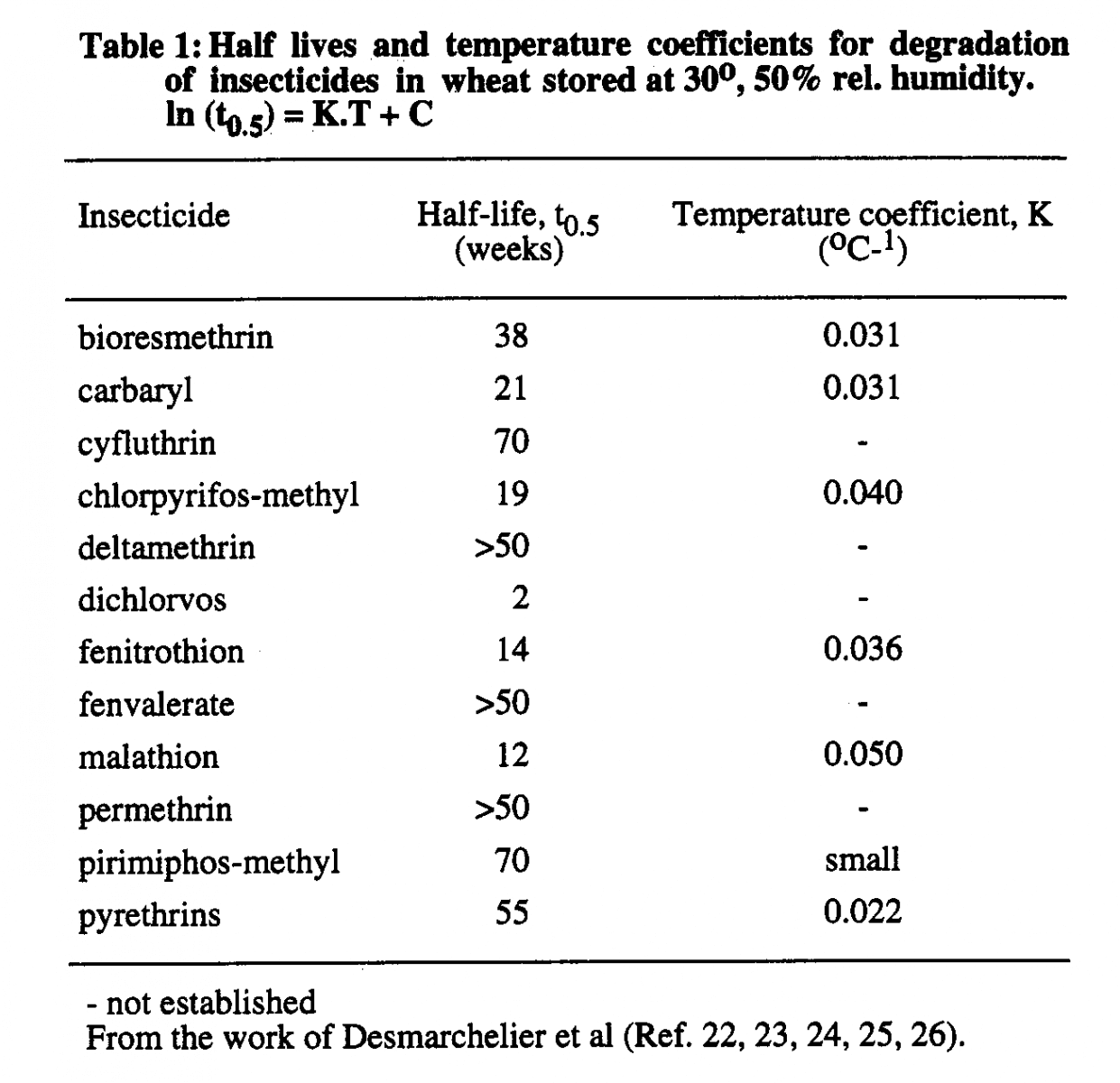
The document outlines permitted chemicals for use post-harvest and applicable Maximum Residue Limits (MRL) for grain outturned to the Australian domestic or export markets. The MRLs apply for grain outturned during the 2025/26 season.
The most common treatments are either fumigants or grain protectants. For approved labels of each product, refer to the APVMA PubCRIS website https://portal.apvma.gov.au/pubcris.
Industry is encouraged to familiarise themselves with this document to ensure Australian grain continues to comply with market requirements for chemical residues.
The document should be referred to when marketing Australian grain to assist industry in adhering to the Maximum Residue Limits. It is referred to in a number of GTA publications. Industry is advised this is the latest version and supersedes all prior versions.
To review the Chemical Usage and Outturn Tolerances Document 2025/26 click here
For any enquiries relating to this document, please email the Chair NWPGP at gerard@mcmullengrainagricultural.com
A relatively limited number of grain protectants are available for use to control stored grain insects in grain held in storage. Insect resistance and market perceptions/restrictions are also further limiting the availability and use of those chemicals.
When using grain protectants, a range of issues need to be considered, including:
For the most commonly available grain protectants, a range of factors determine the expected half-life of those chemicals. The following table outlines the half-life based on specific temperature and humidity conditions, which alter over time and thus the information is general only*:

* Ex Pure & Appl. Chem., Vol. 66, No. 2, pp. 335-356, 1994. INTERNATIONAL UNION OF PURE AND APPLIED CHEMISTRY “EFFECTS OF STORAGE AND PROCESSING ON PESTICIDE RESIDUES IN PLANT PRODUCTS” (Technical Report) Prepared for publication by P. T. HOLLAND, D. HAMILTON, B. OHLIN and M. W. SKIDMORE
The goal of the strategy is to ensure the long-term sustainability of phosphine and other grain protection chemicals through the strategic adoption and implementation of commercially viable, practical, scientifically-based management strategies to control insects.
The previous Phosphine Resistance Management Strategy is now termed “Strategy to Manage Insect Resistance to Grain Protection Chemicals”. It now includes all grain protectant chemicals and outlines a range of measures to combat insects through various chemical and non-chemical means. Industry is encouraged to implement the revised Strategy for the longer term sustainability of our industry.
The latest strategy document for industry use is available here
A guide for industry – Fumigation Protocol is also available to industry to assist adherence to the Insect Resitance Management strategy for managing insect resitance to grain protection chemicals.
The GRDC operates a Stored Grain information hub website for use by all stakeholders along the value chain. The website has a focus on provision of material for the stored grain sector, relevant to the on-farm storage sector and the ex-farm gate Bulk Handling Company sector.
Information available includes a range of material relevant to storage of grain and post-harvest chemical use, such as the latest grain storage and structural treatments, and can be accessed here
Stay updated on industry news and events. Subscribe now for exclusive updates and insights!
Self Regulatory Framework
NEWS
Self Regulatory Framework
NWPGP
NEWS
Events
Street Address
Level 7
12 O'Connell Street
Sydney NSW 2000
Postal Address
PO Box R1829
Royal Exchange
Sydney NSW 1225
Street Address
Level 7
12 O'Connell Street
Sydney NSW 2000
Postal Address
PO Box R1829
Royal Exchange
Sydney NSW 1225